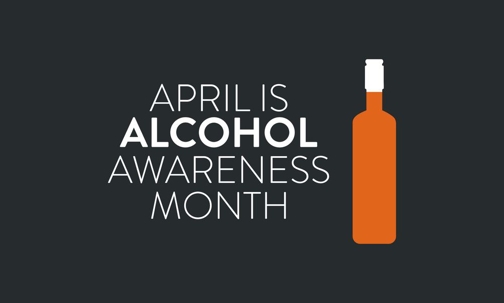This year, alcohol awareness month, which happens every April, may be more important than ever before. Why?
Americans Are Depending On Alcohol to Cope
According to the New York Post and Nielsen data, U.S. alcohol sales rose by 55% in the week ending March 21, 2020. People are buying hard alcohol, spirits, beer, and wine in disturbing quantities, and ordering even more alcohol online.
In most cities and states, liquor stores are also considered “essential businesses,” and remain open during local lockdowns.
If you’ve ever struggled with an alcohol abuse disorder, you know exactly why this data is unsettling – and why using alcohol as a coping mechanism is harmful.
WHO Calls Alcohol an ‘Unhelpful Coping Strategy’
A technical officer at the World Health Organization (WHO) acknowledged that “many turn to alcohol in times of crisis” to cope with anxiety and worry but encouraged putting a stop to this kind of behavior. The doctor noted that drinking “can make things worse,” and is an “unhelpful coping strategy” during the COVID-19 pandemic.
WHO’s mental health and substance abuse expert also noted that this worldwide health crisis may lead those recovering from alcohol addiction to relapse.
Awareness and Denial
Many people may not recognize that their relationship with alcohol is problematic. They may underestimate the amount they drink, or the negative impacts alcohol has had on their life, or overestimate their ability to quit. Denial often plagues those around people with an alcohol disuse order as well, as they may not want to acknowledge the gravity and reality of the situation or be uncomfortable bringing it up with their friends and family members.
In April, organizations like the Substance Abuse and Mental Health Services Administration (SAMHSA) will increase their outreach efforts and provide the public with valuable resources for addressing alcohol addiction. Many awareness events, like those sponsored by the National Institute on Alcohol Abuse and Alcoholism (NIAAA), will also be held online.
Further, WHO representatives have said it is “vital” that drug and alcohol services remain accessible throughout self-quarantine and social isolation.
Vital Services
Many sobriety groups and 12-step meetings (i.e. AA – Alcoholics Anonymous) have started offering online services and virtual meetings. To read more about how coronavirus could affect your recovery and find helpful online resources, please click here.
As an essential service, Decision Point Center also remains open for those struggling with drug and alcohol addiction. We are taking every possible step to stop the spread of COVID-19 while providing effective treatment options for those who need them.
If you have come to terms with your problem and are ready to get help or even if you are battling a relapse, please do not hesitate to get in touch.
Call us today at (844) 292-5010 or contact us online to get more information about our programs and therapies and take your first steps toward recovery.
For the most up-to-date and accurate information about coronavirus, please visit the Centers for Disease Control and Prevention (CDC).

